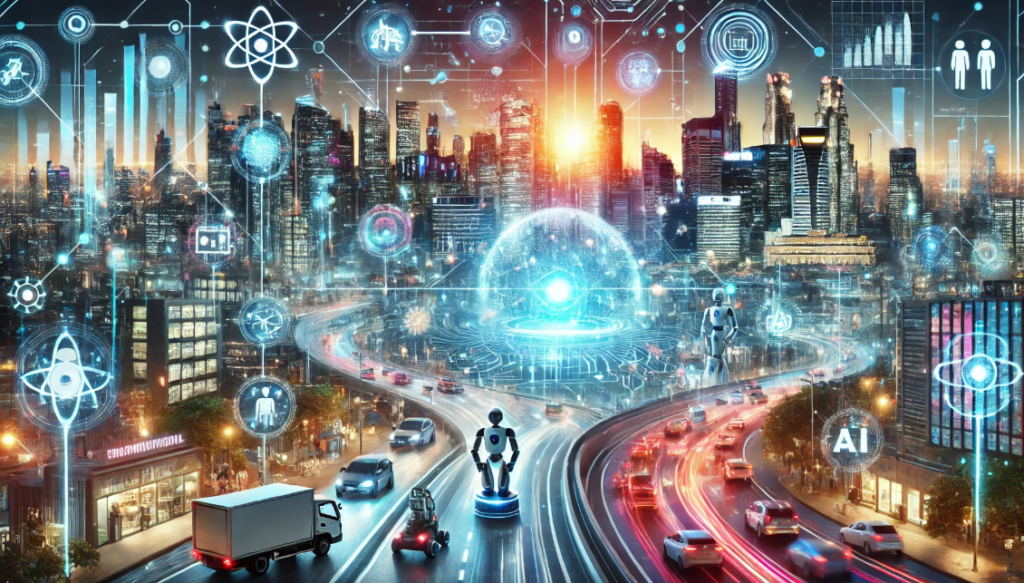
The digital era continues to evolve rapidly, bringing significant changes across various aspects of life. One of the key driving forces behind this technological transformation is Artificial Intelligence (AI). AI has become the centerpiece of innovation, accelerating humanity’s adaptation to an increasingly interconnected world. In this article, we will explore the role of AI in technological transformation and its impact on the digital future.
1. The Fourth Industrial Revolution and AI
AI plays a pivotal role in the Fourth Industrial Revolution. With its ability to analyze big data, identify patterns, and make predictions, AI supports automation across sectors such as manufacturing, logistics, and customer service. For example, intelligent robots in factories can work autonomously and efficiently.
2. AI in Everyday Life
AI has permeated various aspects of daily life, such as:
- Virtual Assistants: Technologies like Siri, Google Assistant, and Alexa help users manage schedules, answer questions, and even control smart home devices.
- E-commerce: AI-powered recommendation systems enhance shopping experiences by suggesting relevant products based on user preferences.
- Navigation and Transportation: Applications like Google Maps and Waze leverage AI to provide the fastest routes, while autonomous vehicles are becoming a reality.
3. AI in the Business World
In the business domain, AI offers numerous advantages, such as:
- Decision-Making: AI-driven data analysis helps companies make more strategic and accurate decisions.
- Enhanced Customer Service: AI-powered chatbots provide 24/7 service with quick and efficient responses.
- Operational Efficiency: Automation of business processes reduces human error and increases productivity.
4. AI’s Impact on the Future
As technology progresses, AI will continue to play a crucial role in delivering innovative solutions. Some anticipated impacts include:
- Improved Well-being: AI can advance healthcare by enabling more accurate disease diagnoses and the development of new treatments.
- Personalized Education: AI-based learning systems can tailor materials to individual needs.
- Ethical and Security Challenges: AI usage raises concerns such as data privacy, algorithmic bias, and potential misuse of technology.
5. Embracing the Future with AI
To fully harness AI’s potential, individuals, businesses, and governments must:
- Invest in AI research and development.
- Enhance digital literacy among the public.
- Establish regulations ensuring ethical and responsible AI usage.
Conclusion
AI is a cornerstone of technological transformation shaping the digital future. With immense potential, this technology opens new opportunities while demanding significant responsibility. With the right approach, AI can be a tool that brings substantial benefits to humanity and civilization.










